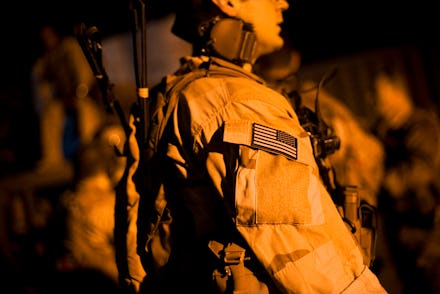How the U.S. Just Caught the Mastermind of the Benghazi Terror Attacks

The news: A U.S. official confirmed that Ahmed Abu Khattala, a suspected ringleader of the 2012 Benghazi attacks, is on an American ship headed toward the U.S., where he will be arraigned.
U.S. special forces captured Khattala, whom the State Department has designated a global terrorist, in a secret raid in Libya on Sunday. After months of planning, Delta Force, one of the Army's elite units, in conjunction with the FBI, carried out operations to capture the suspect and bring him to the U.S.
Once in the U.S., Khattala will be charged in a three-count criminal case in federal court for "killing a person in the course of an attack on a federal facility involving use of a firearm," providing and conspiring to "provide material support to terrorists resulting in death" and using a firearm in "relation to a crime of violence."
This is the first apprehension involving the Benghazi incident that shook the nation on Sept. 11, 2012, and triggered a political firestorm about who was to blame for the events. But it is not the first time Delta Force has garnered attention for their covert tactics. As new details emerge about the Khattala mission, Delta Force and the FBI's Hostage Rescue Team (HRT) are materializing as the go-to international anti-terrorism force.
Behind the U.S. Special Forces' operation: Sunday's raid, according to the Daily Beast, "was more than a year in the making." Delta Force used a mock-up of Abu Khattala's compound built at Fort Bragg, N.C., to test out the mission.
The team's partnership with the FBI's HRT unit is a fairly new development in Army practices. While the FBI often works with U.S. special operations units, it is mostly for domestic cases. But in the June 15 raid in Libya, Delta Force closely collaborated with embedded FBI HRT members to precisely locate and capture Khattala.
According to reports, half the men working in the HRT unit are former special ops. Additionally, special op units like Delta Force conduct many of the HRT's training and/or work as liaisons between the two.
Only a limited amount of information is being released about the details of the event. But taking cues from previous Delta Force practices, it was most likely conducted during the night or early morning hours and took only a matter of minutes or seconds to complete. In the aftermath, U.S. officials reported there were no casualties during the operations and that all U.S. personnel involved exited the country safely.
Here's a play-by-play of a previous raid: A video obtained by the Washington Post in February shows the covert tactics that Delta Force employs to capture suspects.
The U.S. forces involved are swift, quiet and methodical in their operation, barely disturbing the neighborhood. Moments after Nazih Abdul-Hamed al-Ruqai, an al-Qaida terrorism suspect, was captured in front of his family's home in October 2013, confused residents trickle out of the house.
Ending a 13-year manhunt, the whole operation transpires in less than a minute. Ruqai is currently awaiting trial in New York for his role in the 1998 bombings of the U.S. embassies in Kenya and Tanzania, which caused the deaths of more than 200 people.